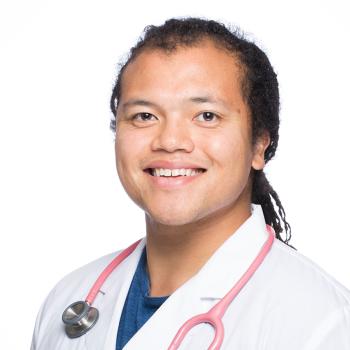First Intermountain Healthcare-Stanford Medicine Physician Fellows Focus on Healthcare Innovation
This press release was orginally distributed by ReleaseWire
Salt Lake City, UT — (ReleaseWire) — 08/10/2020 — The first two physician fellows from the Intermountain Healthcare-Stanford Medicine Population Health and Care Delivery Science Fellowship have graduated from the unique two-year master’s degree program in health services research.
The collaborative program teaches future physician leaders how to apply innovation and healthcare quality improvement at the two premier health systems.
“The fellowship is a first of its kind,” says Raj Srivastava, MD, MPH, assistant vice president of research and co-director of the Healthcare Delivery Institute at Intermountain Healthcare. “These future healthcare leaders take high quality coursework from Stanford Medicine and are able to apply those principles with clinical teams to implement system-wide projects across Stanford Health Care and Intermountain Healthcare.”
Dr. Srivastava co-developed the fellowship with Steven Asch, MD, MPH professor of medicine at the Stanford University School of Medicine.
“Improving healthcare quality is at the forefront of our minds as we search for best practices to care for our patients during COVID-19. The opportunity to team up with Stanford to facilitate these efforts benefits our patients not only during a pandemic, but also into the future,” said Rob Allen, SVP and COO, and executive sponsor of the Intermountain-Stanford Medicine Collaboration.
Coursework for the fellowship is concentrated in the first year at Stanford Medicine. In year two, all fellows attend Intermountain Healthcare’s Advanced Training Program in Clinical Quality Improvement at the Healthcare Delivery Institute while working with mentorship teams at both institutions to develop a project from conception to completion and publication.
Fellows also receive an in-depth introduction to top operational initiatives during a day of strategy with Intermountain’s executive leadership team. The fellows applied the knowledge they gained around the concept of adaptation, as each pivoted their work to make meaningful contributions to the COVID-19 responses within each organization.
Recent graduates and their projects include:
Harris Carmichael, MD, an internist who recently joined Intermountain as a hospitalist following his fellowship. He worked with Eddie Stenehjem, MD, on a system-wide rollout in urgent care locations to test ways to reduce unnecessary antibiotics. To assist Intermountain and Stanford Medicine in their COVID-19 responses, he helped develop a predictive model for clinical deterioration and a telemedicine evaluation.
Stacie Vilendrer, MD, MBA, a family physician, who recently joined Stanford Medicine as a clinical instructor of medicine. She worked on innovative methods of providing patient satisfaction ratings to physicians, and incentivizing physician participation in quality and efficiency improvement efforts. To assist in the COVID-19 response, she worked on outpatient pulse oximeter deployment and evaluating telemedicine in nontraditional settings like inpatient wards and for surgical and neurology visits. She also helped evaluate an application for connecting essential workers to Stanford Medicine COVID-19 testing.
Other fellows currently working on projects include:
Sam Thomas, MD, an internist from Utah. He is working on incorporating social factors into population health, clinical management and pharmacy benefit design. In response to the pandemic, he helped evaluate the COVID-19 clinic startup and telemedical opportunities at Stanford Medicine.
Kenji Taylor, MD, a family physician and instructor of medicine based at Stanford Medicine. He works on outreach to the African American community in managing chronic disease. For his COVID-19 response, he built and evaluated a clinical and testing partnership with the Roots Community Health.
Griffin Olsen, MD, who paused his surgical residency training at University of Texas Southwestern Medical Center and Parkland Hospital, to work with leaders in the field of delivery science on the development of innovative ways to enhance the value of patient care. He has partnered with Intermountain’s surgical services clinical program and the Healthcare Delivery Institute on a COVID-19 surgical grant submission.
Vivian Ho, MD, who is participating in the fellowship as part of her Integrated Vascular Surgery residency at Stanford Medicine. She will focus on research that leverages epidemiological and machine-learning methods to evaluate surgical diagnostics and decision-making tools, with the goal of reducing unnecessary testing and streamlining the pathway from diagnosis to intervention.
About Intermountain Healthcare
Intermountain Healthcare is a not-for-profit system of 24 hospitals, 215 clinics, a Medical Group with 2,500 employed physicians and advanced practice clinicians, a health insurance company called SelectHealth, and other health services in Idaho, Utah, and Nevada. Intermountain is widely recognized as a leader in transforming healthcare by using evidence-based best practices to consistently deliver high-quality outcomes and sustainable costs. For more information, see intermountainhealthcare.org.
For more information on this press release visit: http://www.releasewire.com/press-releases/first-intermountain-healthcare-stanford-medicine-physician-fellows-focus-on-healthcare-innovation-1299617.htm

